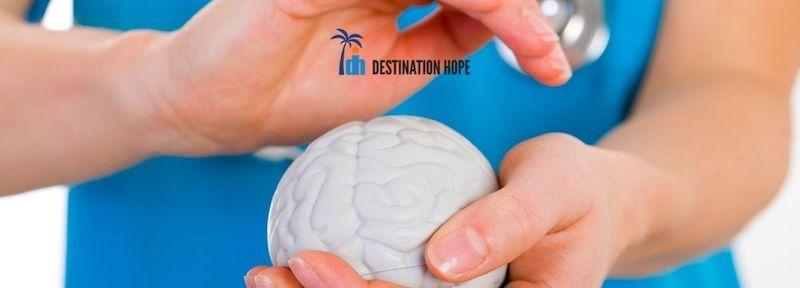Alcohol and drug treatment programs can offer the best chance at recovery for those suffering from addictions and substance abuse problems. Many of the people who need the help of alcohol and drug treatment programs will also have co-occurring issues in addition to their chemical dependency. They may suffer from other mental health issues on top of the addiction such as depression, anxiety, eating disorders, PTSD often due to trauma or abuse, or other addictive behaviors.

When a person has an addiction in addition to mental health issues, it is called a dual diagnosis. Since more than one third of all alcohol abusers and more than half of drug abusers have a dual diagnosis, it is imperative that alcohol and drug treatment programs be well versed in this area and offer it as a specialty track. The dual diagnoses we see the most often at our alcohol and drug treatment programs include depression, anxiety, and eating disorders.
Depression & Anxiety
Struggling with depression and anxiety or addiction independently is hard enough, but when someone experiences the two in tandem, it can seem unbearable. The National Institutes of Health state that people who suffer from anxiety or depression are at a much higher risk of also suffering from an addiction.
Anxiety is most commonly characterized by feelings of fear for a long period of time, panic attacks, obsessive compulsive behavior, phobias, or social anxiety. Depression is typically characterized by prolonged sadness, loss of interest in activities, fatigue, appetite and sleep changes, difficulty concentrating, and sometimes thoughts of suicide.
Eating Disorders
A report by the Center for Addiction and Substance Abuse at Columbia University revealed that half of alcohol or illicit drug abusers also have eating disorders. This is a daunting statistic, which clearly illustrates why our alcohol and drug treatment programs also incorporates eating disorder treatment into our dual diagnosis programs. The two eating disorders that co-occur most often with addiction are anorexia nervosaand bulimia because they share risk factors and characteristics.
For example, caffeine, tobacco, alcohol, laxatives, emetics, amphetamines, diuretics, cocaine, and heroin all help to suppress appetite, purge calories, speed up the metabolism, and self-medicate negative emotions.
Alcohol & Drug Treatment Programs Can Help
Mental health issues, such as the ones described above, can often be an underlying cause of a drug or alcohol addiction, or it can be a symptom of the addiction. Either way, both the addiction and the mental health issue must be treated together to achieve long-term recovery.
If you feel like you might have a mental health problem, ask for help. Seeking help is not a sign of weakness, it is a sign of strength. At Destination Hope we offer a specialty dual diagnosis track for clients suffering from a mental health issue in addition to an addiction.
Our treatment program includes individual therapy with addiction counselors, weekly meetings with a psychiatrist, medication when necessary, group therapy, recreational therapy, nutrition counseling, and family therapy.
